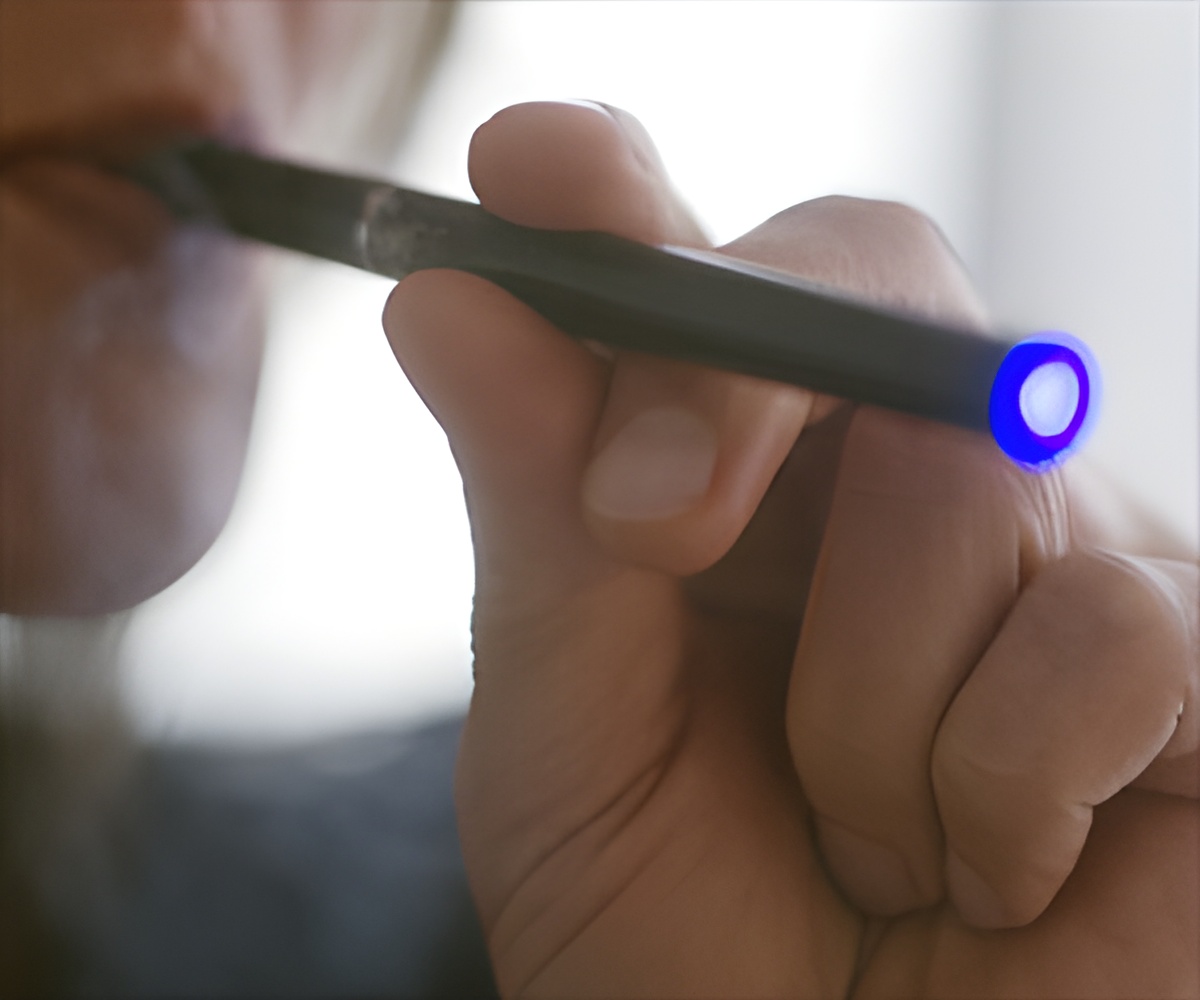Electronic cigarettes (e-cigarettes) may not help smokers quit. Study findings support need for randomized clinical trials to clarify e-cigarettes role in smoking cessation.

While it is generally agreed that e-cigarettes - which deliver nicotine without many of the harmful products produced by burning tobacco - reduce the health risks inherent in smoking cigarettes, few studies have directly investigated the usefulness of e-cigarettes in smoking cessation. The current study analyzed data from a randomized clinical trial that compared two approaches to support hospitalized adult smokers intending to quit after discharge - usual care, which involved recommendations regarding smoking cessation medications and support services, or the intervention, which provided participants with their choice of free FDA-approved smoking cessation medications for up to three months and automated phone calls providing advice and encouragement.
Participants in both study groups could use e-cigarettes, if they chose to, but were advised that their effectiveness as cessation aids was unknown. During follow-up calls, participants were asked if they'd used e-cigarettes since discharge. More than one-quarter of patients had used e-cigarettes in the three months after discharge, with more frequent use in the usual care group than in the intervention group. But overall use was intermittent, with different participants using e-cigarettes at different times. Almost 70 percent of those who used e-cigarettes indicated doing so to help them quit smoking, and their frequency of use ranged from around once a week to daily.
At six months after discharge, participants were biochemically tested for signs of recent smoking. In both groups, participants who reported having used e-cigarettes in the three months after hospitalization were less likely than those who did not use e-cigarettes to have results indicating they were not smoking, an association that was stronger among those in the intervention group. Rigotti notes, however, that since participants chose whether to use e-cigarettes on their own, it could be that those who did so were already having more difficulty quitting.
"These results indicate the urgent need for randomized, controlled trials to investigate whether e-cigarettes can help smokers to quit, which have been difficult to do in the U.S. because of regulatory challenges," she says. "In the meantime, I would tell smokers who want to quit or cut down to use one of the FDA-approved smoking cessation medications, which are known to be safe and effective, as a first choice. If they do choose to try e-cigarettes, they should switch completely from tobacco cigarettes and use e-cigarettes daily, something the American Cancer Society has recently recommended."
Rigotti is a professor of Medicine at Harvard Medical School. The co-authors of the Annals of Internal Medicine report are Yuchiao Chang, PhD, Sara Kalkhoran, MD, MAS, Douglas Levy, PhD, Susan Regan, PhD, Jennifer Kelley, RN, MA, and Daniel Singer, MD, MGH Division of General Medicine; Hilary Tindle, MD, MPH, Vanderbilt University; and Esa Davis, MD, MPH, University of Pittsburgh Medical Center. The study was supported by National Heart, Lung and Blood Institute grant R01-HL11821. //asfadf
Advertisement









